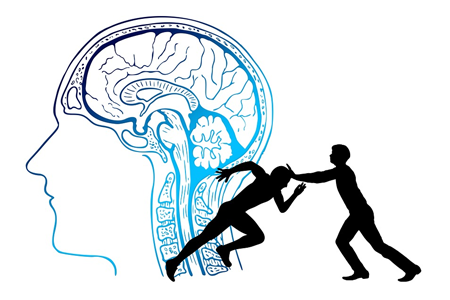
Kyrgios
An Insight into the Effects of Psychology on Sporting Performance
B. Dent
Several weeks ago, professional Australian tennis player, Nick Kyrgios suffered a three set to one loss to world number 1 Novak Djokovic in the Wimbledon grand final. Although his outcome in the match was unsuccessful, his road to this grand slam final was very impressive and it stunned many tennis fanatics around the world. There were a few factors that made his journey to the final outstanding. Prior to the commencement of Wimbledon (arguably the most prestigious tennis tournament in the world), Nick was not seeded, which meant that he was not placed in the 32 highest ranked competitors within the competition. Additionally, along his path to the grand final, he was able to beat world number four Stefanos Tsitsipas.
Over Kyrgios’s 9 years as a professional player, he has constructed a very controversial presence within the world of tennis due to the contrast of his pure natural talent and his unstable demeanour within matches and dealing with the media. He’s an athlete who is able to inspire with his immensely impressive skills, but also one that will incentivise you to change the channel when he is arguing with the umpire or having an aggressive and uncomfortable interaction with a spectator.


When it comes to competing in sport at a professional level, especially in an individual sport such as tennis, an individual’s attitude and mindset is extremely important, having the ability to drastically impact performance and focus. Mentality can often be the differentiator between being a good or a great athlete and serve as a clear indicator of a team/individual’s success. Given this information, it is difficult to comprehend the potential success that tremendously gifted athletes such as Nick Kyrgios could have if they were able to positively reconstruct their mentality. Psychological factors have the ability to impact various facets of an athlete’s development, training, and match-day performance. Consequently, a failure to build mental strength and resilience can lead to athletes falling into positive feedback loops. This may sound beneficial due to the deceptive ‘positive’ in the term, but that’s not the case. Positive feedback loops occur when the product of a reaction leads to an increase in that reaction. An example of an application of this process occurring within an athlete is an individual or team having a poor performance, leading to a decrease in confidence, leading to a worse performance, leading to less confidence, leading to worse performance, etc.


This process can also occur on the other end of the spectrum and therefore lead to athletes experiencing meteoric rises/falls. It is for this very reason that mentality and attitude are detrimentally important aspects that athletes must learn to master on top of their technical abilities if they truly wish to succeed. Using Nick Kyrgios as exhibit A, we can clearly interpret the effects that disadvantageous mental attributes such as arrogance and a lack of emotional control can have on an athlete’s ability to perform and their reputation among a sporting community. Watching Kyrgios at his best is a spectacle that leads to your eyes becoming dry from not being able to blink. However, when spectators see him begin to lose motivation and make unnecessary arguments, they become frustrated as they are forced to witness a showcase of wasted talent and unsportsman-like behaviour. It’s a love and hate relationship, dependent solely on the mental approach that he takes into each game.
